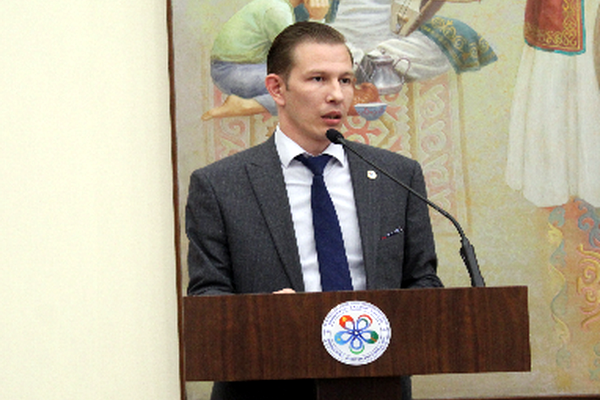
Expansion of transport corridors is the key to achieving sustainable development goals
Tashkent, Uzbekistan (UzDaily.com) -- On 21 June, at the fourth meeting of the heads of states of Central Asia, President of Uzbekistan Shavkat Mirziyoyev once again stressed the importance of promoting alternative transport corridors in the region to enter the markets of India, Pakistan and China.
All Central Asian countries do not have direct access to the World Ocean, and therefore face high transport costs for transportation, therefore Uzbekistan constantly takes the initiative to develop an extensive and reliably functioning network of international transport corridors in the region with access to sea and ocean ports.
Uzbekistan, long before the onset of the current crisis, began to put forward an initiative to strengthen the interconnectedness between Central and South Asia, which was unanimously supported by the entire world community.
An important result of these efforts was the Tashkent International Conference of a High Level of Regional Connectivity in July 2021, which was attended by representatives of more than 40 countries, authoritative international and regional organizations, and financial institutions.
An important achievement was the unanimous adoption by the UN General Assembly of a resolution developed on the initiative of the President of Uzbekistan Shavkat Mirziyoyev on strengthening the interconnectedness between Central and South Asia.
The initiative to adopt this resolution and consolidate in it common approaches, basic principles and directions of dialogue between the regions of Central and South Asia was put forward by the head of our state during the aforementioned Tashkent conference “Central and South Asia: regional interconnectedness. Challenges and Opportunities”.
One of the priority areas for the development of interconnectedness between the regions of Central and South Asia is the establishment of transport infrastructure, which contributes to the expansion of trade and economic ties and the growth of the well-being of peoples.
Today, issues of launching and ensuring the effective functioning of a new multimodal transport corridor China-Kyrgyzstan-Uzbekistan with the prospect of exporting goods in the western and southern directions are being actively promoted.
Also among the large-scale interconnection projects is the initiative to build the Termez-Mazar-i-Shari-Kabul-Peshawar railway, the transit potential of which is 20 million tons per year.
This route is attractive in that it not only does not contradict most other railway projects in the regions of Central and South Asia, but, on the contrary, goes well with them.
If the project is implemented, Uzbekistan and other countries of Central Asia will have access to Pakistani ports on the coast of the Arabian Sea, and this route will become the shortest and cheapest way to the markets of South Asia. The delivery time for goods from Pakistan to Uzbekistan will be reduced from 35 to 4-5 days.
It should be noted that the main driver for the development of trade and economic relations between countries at all times has been the presence of transport and communication interconnectedness, and the expert community of the countries of Central Asia has already established a constructive dialogue within the framework of the Regional Center for the Development of Transport and Communication Connectivity, created on the basis of a proposal put forward by the President of the Republic Uzbekistan during the third Consultative Meeting in Turkmenistan in August 2021.
The initiative of Uzbekistan to establish alternative transport corridors in the region, with reference to the existing infrastructure, will have a multiplier effect and will create full-fledged border trade zones, networks of wholesale distribution centers, and new jobs in the region.
Ares Bayazitov is Chief Research Fellow at the International Institute of Central Asia.